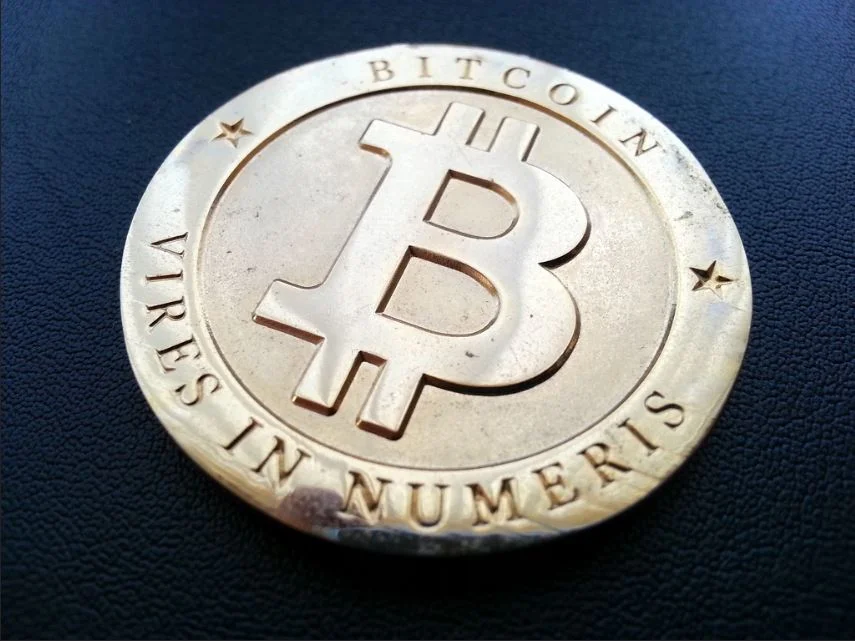By Jerry Mooney
Money is an interesting thing. It ultimately is an attempt to communicate shared value, but it has evolved into a concept that basically controls humanity. This method of communication has become so powerful that it drives behaviors on micro and macro levels in ways that, in a vacuum, are unfathomable.
For example, we go to war because of money. We pollute because of money. We don’t clean up pollution because of money. We let people starve because of money. We will destroy people and the planet we ride on because of money. We’ve enslaved people, killed, died, married, divorced, deforested countries, overthrown leaders, created non-nutritious foods and many more atrocious things because of money.
Through all of this we often think about money, but we rarely consider why we accept this reality. Because so many of the problems that stem from money come from the centralized control of it, the idea of Bitcoin is not only intriguing, but ultimately disruptive. We have seen money go from markings on sticks, coins, paper receipts, commodities and printed paper-ish type markers to the now ubiquitous digital currency like credit cards, which have recently been revolutionized even further with the introduction of EMV card technology.
Throwing its hat into the monetary ring is newcomer Bitcoin. This isn’t merely a digital format of other currency like a digital dollar or Euro. Bitcoin is its own value system created in a unique way through a process that could only exist in the digital world.
Bitcoins are ‘mined’ by solving complicated math equations that ultimately provide processing power to the Bitcoin network. By doing this, miners who find hidden random number strings receive Bitcoin which has value based on a network of people who agree to its worth. This is not completely dissimilar to the way normal currency has value other than it is not and cannot be centrally created.
Northwestern University has created a list of pros and cons of digital currency. And by digital currency, I don’t mean conventional currency in digital form, like a credit card. The cons are generally confined to the relative newness of the currency and the anxiety surrounding that. The pros, on the other hand, include better world wide transactions with lower fees, anonymity and security through encryption, reduced fraud because of transaction permanence, and the currency’s broad base avoids manipulation from centralized authorities.
The security of the currency makes concerns over identity fraud essentially irrelevant. The encryption creates file identities based on mathematics and algorithms instead of personal information. This makes hacking an identity about as improbable as finding a particular piece of sand in the solar system, not just on one beach. Whereas the University of Cincinnati’s snapshot of cyber criminals recently revealed the prominence of cyber-insecurity with conventional transactions methods.
Most importantly, however, are the implications this crypto-currency will have on conventional money. All of these implications are impossible to predict, but it doesn’t take much imagination to foresee a future where money is less of a centralized mechanism of control manipulated by a handful of elites that syphon wealth to very few to one where money is a medium for exchange that allows commerce to flow globally while being accessed by manny. This is similar to what Napster and eventually Bittorrent did to music. And unlike Napster, the files and data are not located in one central place, so there could be no raid on Bitcoin where the assets were seized.
The NSA is incapable of monitoring Bitcoin because the encryption and transactions are completely untraceable. Therefore concerns over privacy violations that are prominent with conventional commerce can be alleviated. Big data and predictive analytics cannot profile users, unlike with other digital currencies.
Ultimately Bitcoin will unlikely replace currencies created by central banks. It may, however, bypass them. By doing so, we could see a major assault on the monetary system that has been designed to enslave us all with debt and inflation. This not only shakes up the way we use money, it changes the way we see it. And once we view money with different eyes, its value changes and so do the implications for all of us.
Featured image is courtesy of Flickr, under Creative Commons Attribution-Noncommercial license
Jerry Mooney is co-founder and managing editor of Zenruption and the author of History Yoghurt and the Moon. He studied at the University of Munich and Lewis and Clark College where he received his BA in International Affairs and West European Studies. He has recently taught Language and Communications at a small, private college and owned various businesses, including an investment company that made him a millionaire before the age of 40. Jerry is committed to zenrupting the forces that block social, political and economic justice. He can also be found on Twitter@JerryMooney


